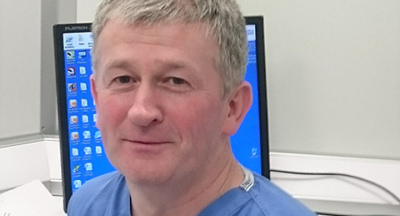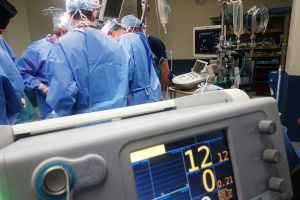UK General Medical Council drops case against doctor who helps women seeking abortion pill reversal

An organization that regulates medical professionals in the United Kingdom has lifted restrictions imposed upon a doctor who was providing abortion pill reversal treatments.
The General Medical Council ended its case against Dr. Dermot Kearney, a consultant for the National Health Service and a former president of the U.K.-based Catholic Medical Association.
In a statement released Sunday by the Christian Legal Centre, which was helping to represent Kearney, the NHS consultant said he was “relieved and delighted to have been exonerated.”
“I have been the victim of a coordinated campaign by senior figures in the abortion industry who have been determined to prevent women in urgent need from accessing abortion reversal treatment,” stated Kearney.

“My hope is that women across the U.K. will now be told by medical regulators and abortion providers that abortion reversal treatment is safe, that it is available, and that success is possible if they regret their decision to have an abortion and choose to seek help.”
The General Medical Council's decision will allow for more widespread use of the abortion pill reversal for women undergoing non-surgical abortions, according to the Christian Legal Centre.
British abortion provider MSI Reproductive Choices U.K., which had filed a complaint to the General Medical Council against Kearney, expressed disappointment at the decision.
“We are extremely concerned that some groups are still recommending progesterone as a means of ‘abortion reversal,’” stated MSI, as reported by the U.K.-based News Letter. “There is no evidence to suggest that this works and some evidence that it may even be harmful.”
In a chemical abortion, also known as a medical abortion, a pregnant woman is given two drugs: mifepristone or RU-486, and misoprostol. Mifepristone blocks the effects of the natural pregnancy hormone progesterone, while misoprostol induces contractions and, eventually, a miscarriage.
Abortion pill reversal process involves administering the natural hormone progesterone to a pregnant woman in an attempt to reverse the effects of mifepristone.
In May of last year, due to a referral from the General Medical Council, Kearney was blocked from providing the abortion pill reversal treatment for up to 18 months by an Interim Orders Tribunal.
The Christian Legal Centre took up his case, presenting the testimonies of several women who reported that Kearney had successfully reversed their attempted medical abortion procedure.
“I have kept in touch with Dr Dermot. I was blown away by his kindness. He never pushed anything on me. He just cared,” stated one unnamed woman who testified, as quoted by the Christian Legal Centre.
“At a time in my life when I had no hope, he was like a little light. If it wasn’t for him I think I might even be dead now. He is a very busy man, but he makes time for people and he genuinely cares for you.”





























